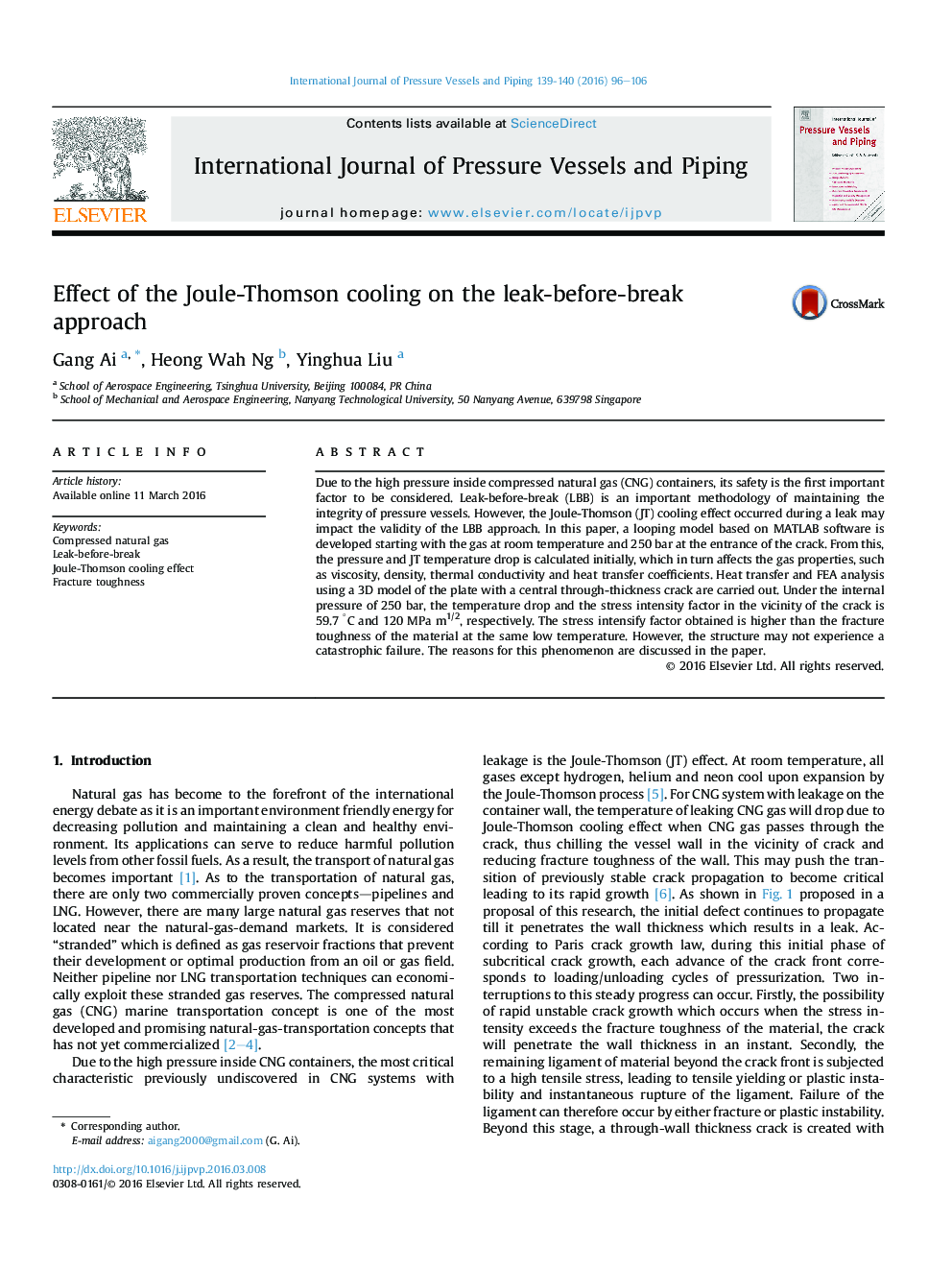| Article ID | Journal | Published Year | Pages | File Type |
|---|---|---|---|---|
| 7175146 | International Journal of Pressure Vessels and Piping | 2016 | 11 Pages |
Abstract
Due to the high pressure inside compressed natural gas (CNG) containers, its safety is the first important factor to be considered. Leak-before-break (LBB) is an important methodology of maintaining the integrity of pressure vessels. However, the Joule-Thomson (JT) cooling effect occurred during a leak may impact the validity of the LBB approach. In this paper, a looping model based on MATLAB software is developed starting with the gas at room temperature and 250 bar at the entrance of the crack. From this, the pressure and JT temperature drop is calculated initially, which in turn affects the gas properties, such as viscosity, density, thermal conductivity and heat transfer coefficients. Heat transfer and FEA analysis using a 3D model of the plate with a central through-thickness crack are carried out. Under the internal pressure of 250 bar, the temperature drop and the stress intensity factor in the vicinity of the crack is 59.7 °C and 120 MPa m1/2, respectively. The stress intensify factor obtained is higher than the fracture toughness of the material at the same low temperature. However, the structure may not experience a catastrophic failure. The reasons for this phenomenon are discussed in the paper.
Related Topics
Physical Sciences and Engineering
Engineering
Mechanical Engineering
Authors
Gang Ai, Heong Wah Ng, Yinghua Liu,
